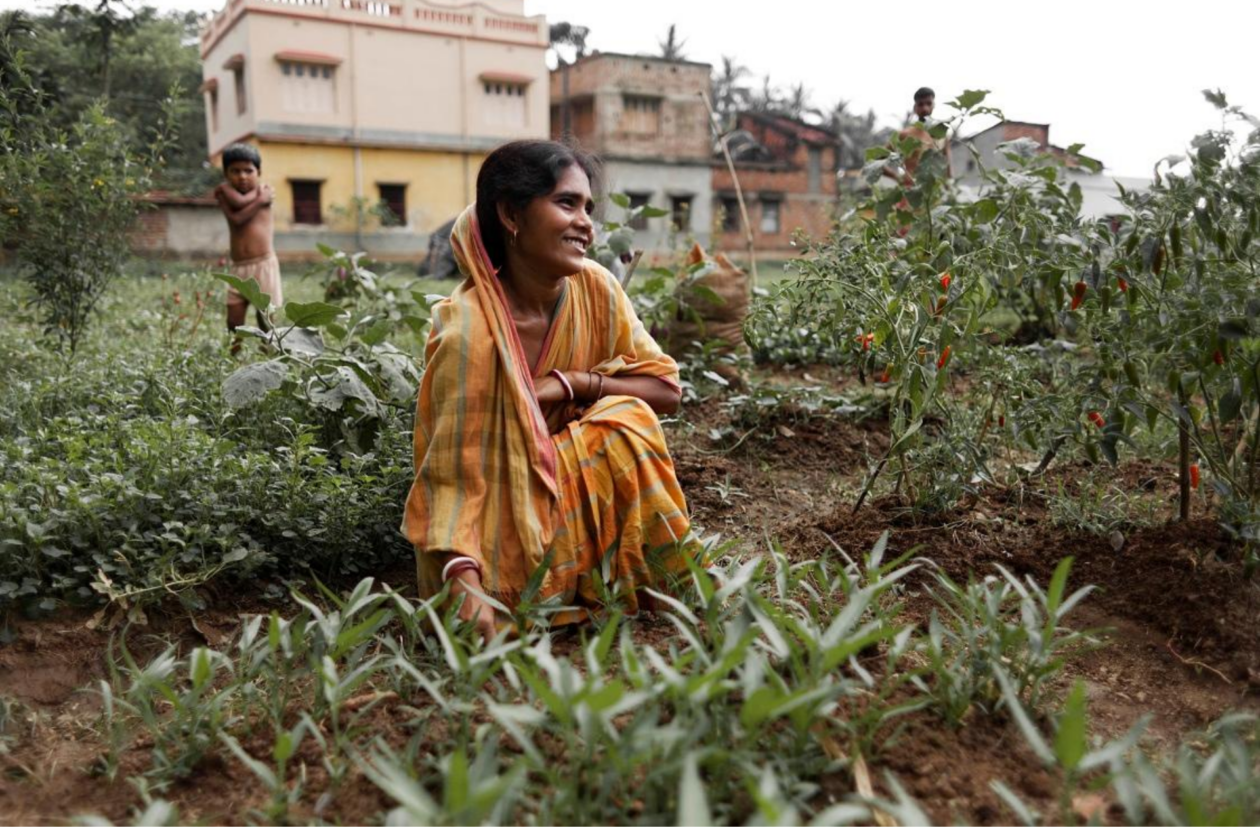
Our relationship with food ties us directly to our landscapes. Humanity depends on the planet to provide for our survival. But today’s dominant model of food production and agriculture has created a rift in this symbiosis: Mostly defined by industrialisation, corporatisation and specialisation, it has come at the expense of more holistic models that support livelihoods, the environment and well-being, and has led to deep crises in the food system.
This has never been more obvious than during the COVID-19 pandemic. Whereas those of us in the US and Europe may have felt a slight feeling of panic amidst empty shelves in our supermarkets, the downsides of our dominant food system really hit home among those already most marginalised. The small-scale producers in Peru, who suddenly lost the ability to access local markets to sell their wares. The women in Kenya who are dependent on daily wages in an informal economy that has completely shut down. Or the farmers in Indonesia who are producing coffee for a dwindling export market.
In response, communities of food producers around the world are creating alternatives, building and sharing knowledge on agroecology, seed saving, and environmentally-friendly small holder farming, even and especially during the pandemic.
Global Greengrants Fund is proud to support these grassroots movements of farmers, fisherfolk, beekeepers, and artisans, who are committed to restoring the environment, establishing a fair wage, and increasing local resilience to the impacts of climate change and disasters. Their work is not just about securing an income, but rather economic independence, and showcases a form of resistance to boom-and-bust development and the dehumanisation of indigenous communities and cultures.
The concept of food sovereignty is key for this new relationship with nature: the ability for people to sustainably control their access to food over time means greater resilience and less vulnerability in times of crises, and an approach of regeneration ensures that we are not depleting natural resources to the point of collapse.
Food sovereignty is also an important strategy in the fight to avoid climate catastrophe: How we produce our food is both impacted by and contributing cause of the climate crisis and the loss of biodiversity, erosion of rural livelihoods, and the contamination of land and water.
The dominant food system undermines food cultures, fails to alleviate hunger and malnutrition, and has consolidated power in the hands of corporate agribusiness and transnational institutions. Industrial agriculture is grounded in the use of fossil fuel and high energy consumption. Conversely, as research by CLIMA Fund shows, agroecology is an important strategy in the fight to reduce carbon emissions.
The COVID pandemic is giving us a unique opportunity to rethink our relationship to food, and make these connections more visible.
In a recent conversation, Cristi Nozawa, Executive Director of our sister fund The Samdhana Institute, told me: “The idea of the value chain and producing for single commodities like coffee, sugar and cacao has been challenged by COVID-19; we need to push for a diversification of food sources and agricultural products. No one single commodity should be the focus of any one community.”
When unable to sell these commodities, farmers are left with the realization that you can’t live off coffee alone.
This is confirmed by our grantee Helene Mapoko from Artisan au Féminin, Cameroon: “Now that the borders have been closed for so long, we need to campaign for locally produced food. Local agriculture and local food production led by women. We can work a lot on producing food close to cities with fruit trees and analogue forests, this way we won’t get a famine… now the women are eating maize; little plants close to the house. This has never happened before so people are discovering their own backyard!”
A food sovereignty approach increases resilience to crises, helps mitigate the impacts of climate change, and ensures that people live in dignity and harmony with the environment.
